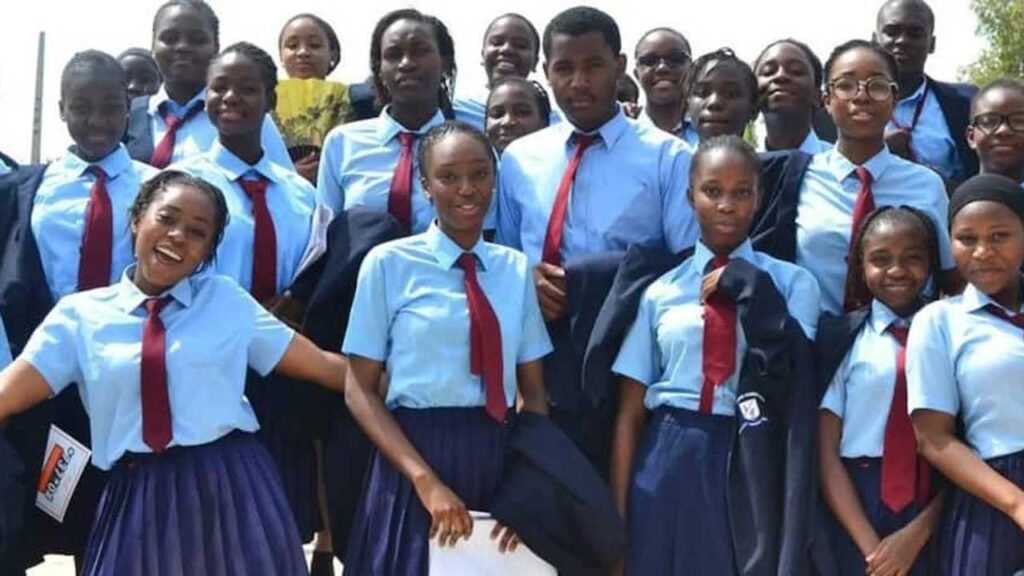Education stakeholders across Nigeria are sounding the alarm that adolescents need relevant and timely instruction on sexual health — a move they say could meaningfully reduce rates of teenage pregnancy and sexually transmitted infections (STIs). Many believe that introducing comprehensive and age-appropriate sex education at an earlier age will help young people make better-informed decisions, remain healthier, and sidestep life-altering risks.
According to recent academic literature, the lack of robust sexuality education exposes young Nigerians to unplanned pregnancies, early marriage, school drop-outs and persistent STI rates. With this backdrop, educationists and health advocates are urging stakeholders — schools, parents, government agencies, religious and community bodies — to rethink how and when they engage adolescents in the topic of sexual and reproductive health.

Why now and why early
There are multiple reasons why early intervention is being pushed.
Firstly, global and local studies show that poorly timed or insufficient sex education correlates with higher incidence of unwanted adolescent pregnancy and STIs. For example, a study in Nigeria found that adolescents who had ever received any form of sexuality education were far more likely to want comprehensive sexuality education than peers who had not. School-based programmes have, in other contexts, shown meaningful reductions in teenage pregnancy and unplanned sexual behaviour.
Secondly, the adolescent years (often ages 10-19) are a window of transition: physical changes, curiosity, peer influence, digital media all converge, and the earlier young people receive accurate, non-judgemental information, the better prepared they may be for healthy choices. A qualitative review in a Nigerian setting emphasised the risk of leaving adolescents uninformed: “sexual promiscuity prevails among adolescents in secondary schools… Participants advocated for school-based sex education, to complement traditionally accepted sexual abstinence.”
Thirdly, introducing sex education early does not just aim to prevent pregnancy or disease—it also helps build healthier attitudes to relationships, respect for bodily autonomy, consent, emotional maturity and self-esteem. These broader developmental benefits add to the public health argument.

Challenges and cultural considerations
Despite the compelling arguments, rolling out early sex education in Nigeria is not without obstacles.
Cultural and values-based resistance: One oft-cited issue is tension between “knowledge-based” sex education (facts around anatomy, contraception, STIs) and deeply rooted cultural or religious values. As one analysis notes: “ Sex education in Nigeria: When Knowledge Conflicts With Cultural Values.” Some parents and teachers fear that discussing sex may encourage early sexual activity rather than restrain it.
Parental discomfort and communication gaps: Many adolescents report that they lack open channels at home to discuss sexual health; parents struggle with embarrassment or lack of training to engage meaningfully. In one study, “History of communication on sexual-risk between parent and adolescent remains weak.” Without parent-teacher-community alignment, school-based programmes may have a limited effect.
Implementation constraints and inequality: Schools may lack trained teachers, appropriate curricula, youth-friendly facilities or consistent funding. Some programmes are patchy. Moreover, disparities exist between urban, peri-urban and rural settings in access and delivery. For example, in the Ekiti State study, adolescents in urban areas were more likely to receive and desire comprehensive sexuality education than rural or peri-urban peers.
What educationists recommend
From the views of experts, educationists and health practitioners, a multi-pronged approach is needed to make early sex education effective:
- Start earlier but age-appropriate: Introduce basic concepts (body changes, respect, boundaries) in upper primary, and build progressively through junior and senior secondary. Clear progression ensures children aren’t overwhelmed but aren’t left behind.
- Use a comprehensive sexuality education (CSE) model: Not just abstinence-only, but including anatomy, contraception, STIs, consent, relationships, and gender equality. Research affirms that well-implemented CSE can reduce teenage pregnancy rates significantly.
- Engage parents, community, faith bodies: Education outside school matters. When parents are trained, when religious leaders support, and when communities understand the link between knowledge and risk, resistance eases.
- Ensure youth-friendly services: Adolescents need safe spaces where they can ask questions confidentially, access reproductive health services, and get accurate information from trusted sources.
- Adapt curricula to culture and context: Sex education must respect local norms but also challenge harmful practices or taboos. The concept of “conflict-aware” sex education recognises that knowledge and cultural values may clash—and deliberate strategies must be used.
- Monitor and evaluate outcomes: Collect data on knowledge, attitudes and behaviours before and after programmes. Good monitoring shows what works, for whom, and under what conditions. Evidence-based refinement is critical.

Conclusion: A call to action
For Nigeria to make real progress in reducing teenage pregnancy and STIs, the message from educators is clear: we cannot wait any longer. By introducing sex education early, and doing it well—with sensitivity to culture, with full community buy-in, with resources for schools and youth services—we can give young people the tools to protect themselves, respect themselves and make informed choices.
Yes, this will challenge existing norms and require investment. But the consequence of inaction — continued high rates of adolescent pregnancy, school-drop-out, unsafe abortion, STIs, life-long socioeconomic disadvantage — is far more costly.
If Nigeria’s policymakers, educators, parents and community leaders heed the call and act together, then the vision of healthier, empowered adolescents becomes attainable. It’s time we gave our youth the knowledge and support they deserve.
Join Our Social Media Channels:
WhatsApp: NaijaEyes
Facebook: NaijaEyes
Twitter: NaijaEyes
Instagram: NaijaEyes
TikTok: NaijaEyes
READ THE LATEST EDUCATION NEWS




